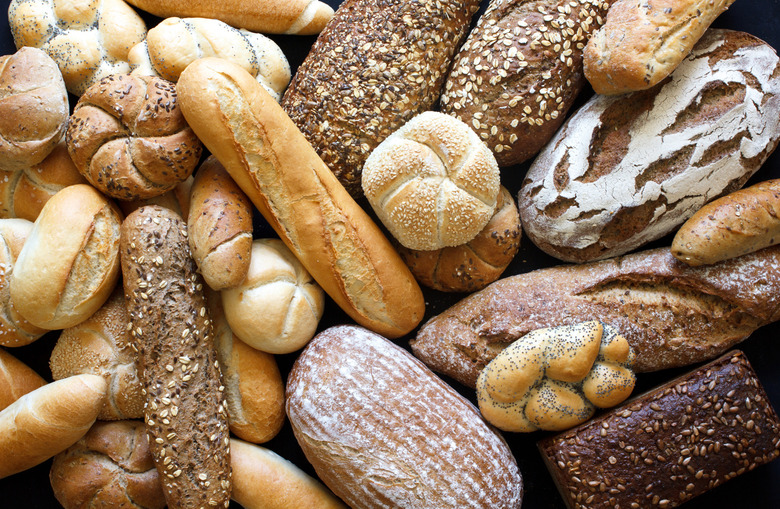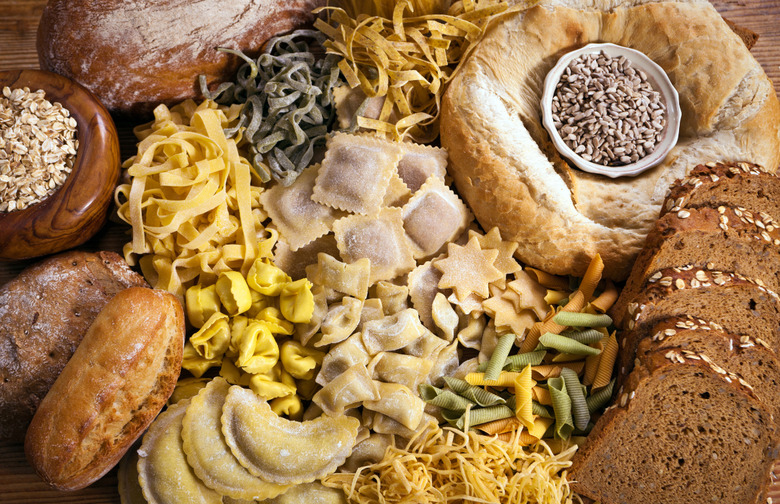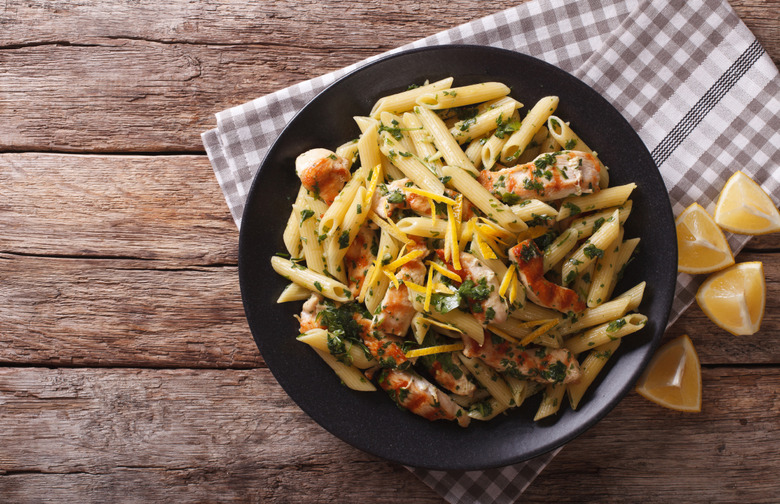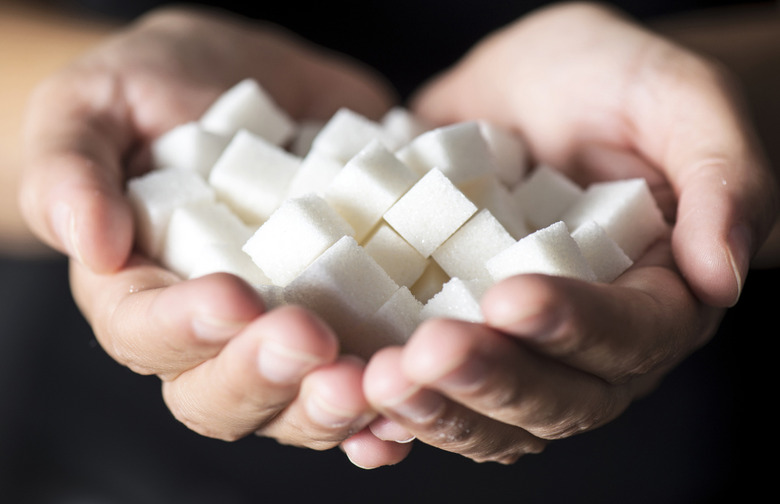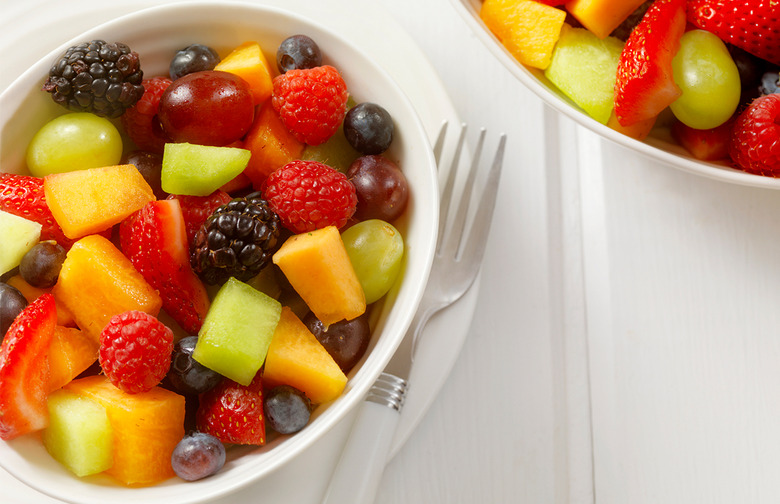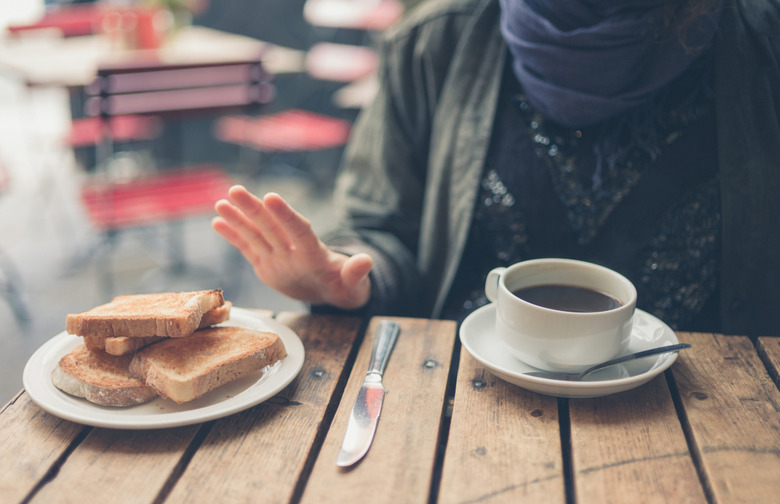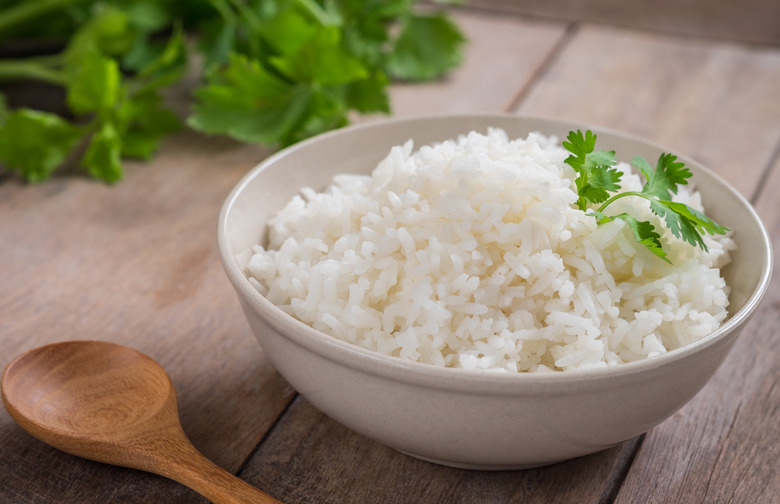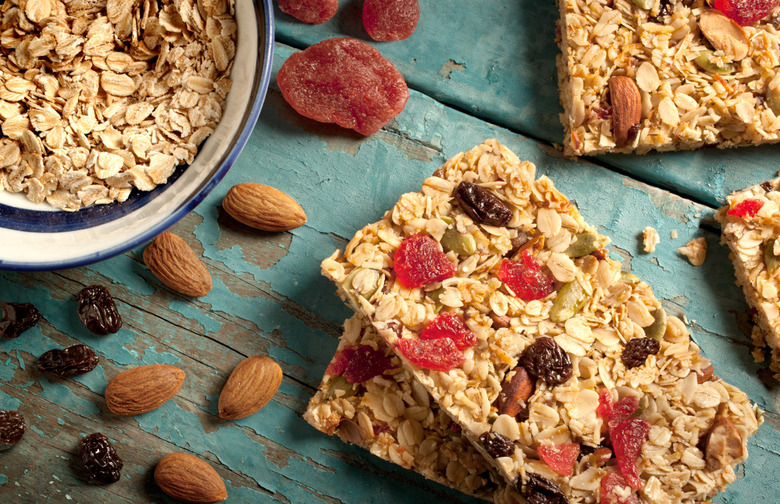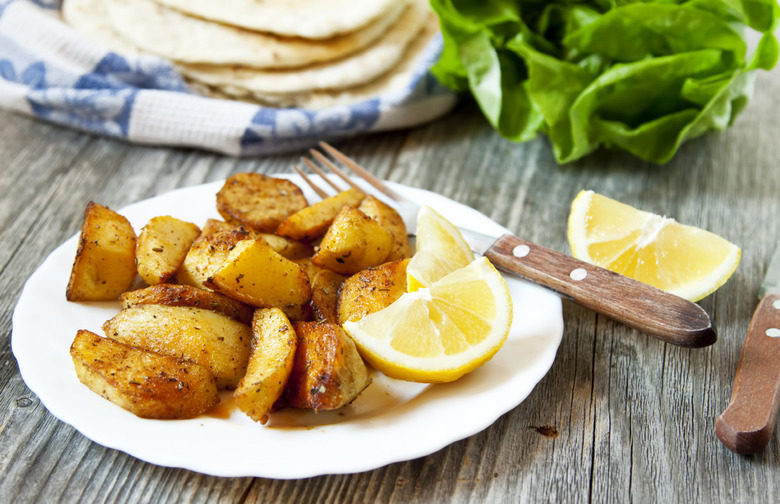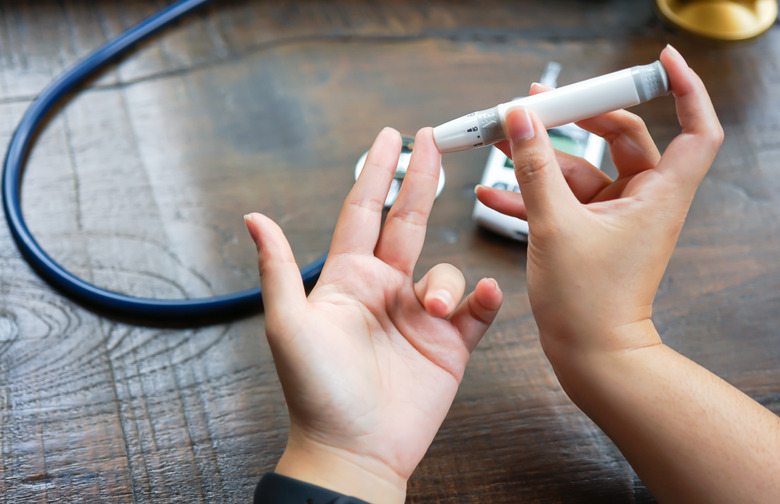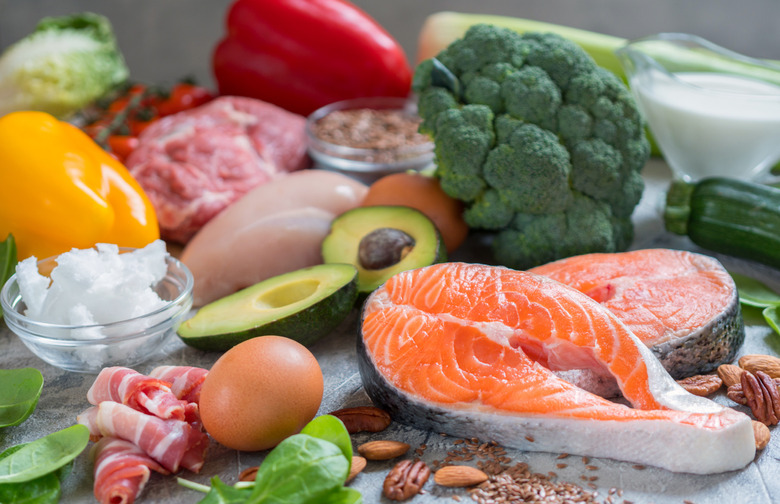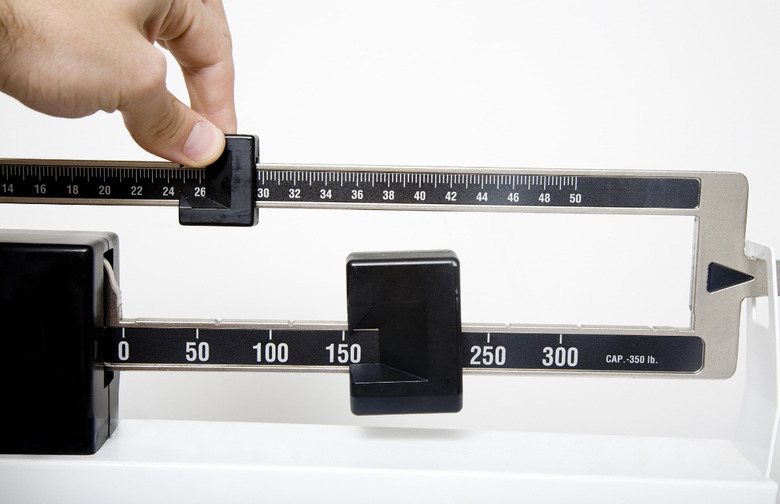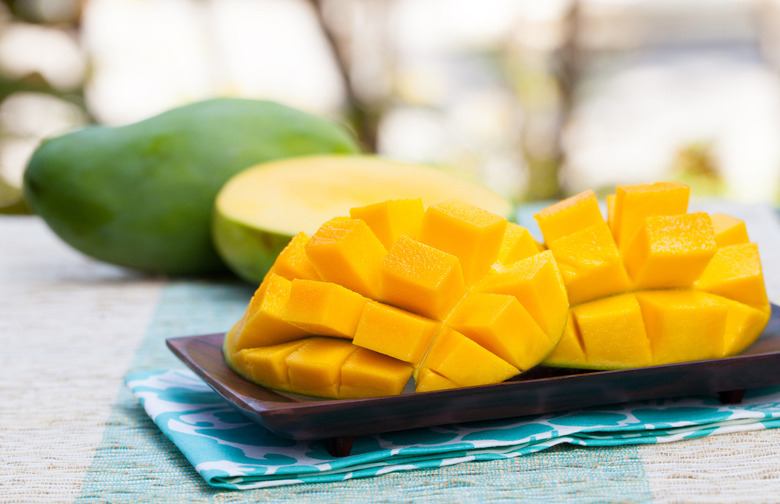Every Question You've Ever Had About Carbs, Answered Slideshow
"Oh, I don't need the carbs." You've probably either voiced this anxious assertion yourself or heard someone else say it once or twice — the notion of carbs being bad and not "needing" carbs has permeated the health conversation for quite a while now. However, by recommendation from the American government, carbs are meant to take up 50 percent of your daily calorie intake.
How confusing is that? Well, the government isn't so far off-base, and it's not like they're pulling those recommendations out of thin air. There's a huge amount of science, case studies, and nutrition experience that led to that number. Fruits, whole grains, and lots of other healthy foods like beans and peas are absolutely loaded with carbs. But don't go tossing your quinoa yet.
The truth: Carbs aren't actually all that bad.
We just get thrown a lot of demonizing, glorifying, and all-around confusing terms that muddy the waters on what carbs we should all be eating. Low-carb, carb-loading, good carbs, bad carbs... We're here to clarify this conglomerate of conflicting terminology so you can understand carbohydrates, once and for all.
Do carbs make you gain weight?
No. Weight gain occurs for a number of reasons, but eating carbs is not one of them. Eating an excess of carbs? Maybe. But the same could be said of literally any other food. Did you know that when you eat an excess of protein, your body stores it as fat? There's nothing especially fattening about carbs.
How many carbs should I eat?
The American dietary guidelines recommend that you eat half of your day's calories from carbohydrates. Though this is a good guideline to keep in mind, we don't recommend you start counting calories, measuring portions of carbs, or worrying at all about exactness. That can result in a lot of anxiety, restriction, and obsession in the long term. Since no two days of your life are the same, no two days will result in the same need for carbohydrates. Don't sweat it.
Just remember that carbs are great sources of energy and that your body uses them wisely. Try to fill half of your plate with carbohydrates and pair them with appropriate portions of protein and fats. If you try that and it doesn't work for you — perhaps you feel tired, hungry, irritable, or maybe even overly full — try something else. No two days are the same and no two people are, either. The only source of information you should listen to when deciding what you should eat is your own body.
How much sugar is too much?
It's recommended that women stick to 6 teaspoons and men to nine teaspoons per day of added sugar. That's the corn syrup, fructose, and other sugars that get added to our food. As for natural sugars, there is no recommended daily limit.
Again, listen to your body and don't worry about the numbers. Some days, you're just going to end up eating more sugar, and that's fine. Just be mindful. After you eat a donut, do you really want a big bowl of cereal? Probably not. Your body will likely tell you that it's done, whether it tries to communicate with you by making you tired, giving you a headache, or intensely craving potato chips.
You're not really addicted to sugar. We promise.
It gets tricky these days because sugar is added into so many processed foods, so we're eating more of it without being able to be mindful because we aren't aware. Check your labels — even savory foods are hiding added refined sugar. If you're buying peanut butter, pasta sauce, or salad dressing, you probably should read the ingredients just to know what you're eating.
Is fruit still healthy if it has sugar?
This question is overlooking an important quality of sugar — there are so many different kinds. Not all sugars are created equal, and eating a banana is not going to feel the same as eating a packet of gummies. Natural sugars are the most easily processed by your body, and often come with fiber and other nutrients from those foods, as well. Fruit has a lot of natural sugar. Milk, yogurt, and even potatoes have sugar, too. Definitely don't feel like you need to cut any of those foods out. Saying that "sugar is bad" is majorly overlooking all the benefits of the naturally-occurring nutrient.
Is going gluten-free healthier?
There's nothing about gluten-free food that's any healthier than glutinous food — unless you're legitimately intolerant or allergic to gluten. If you are, you'll definitely already know.
In the midst of the low-carb diet craze, people started becoming more aware of gluten intolerance. Somewhere in all the mess, since gluten is associated with bread and carbs, gluten became associated with "bad" foods for your health. This is entirely unfounded. Eating gluten-free is hard, and if you don't have to for medical reasons, why would you put yourself through that dietary restraint?
What are carbs good for?
Okay, so gluten isn't bad, sugar isn't bad, and carbs aren't bad. What makes carbs good?
Carbohydrates are your body's favorite source of energy. It can quickly convert carbohydrates to fuel, and it really likes that. Carbs keep you feeling lively, awake, and ready for your daily active life. Without them, your body has to work harder to keep going; it will likely tell you it needs more carbs by sending you hunger signals, even if you've had enough to eat.
What are ‘good carbs’ and ‘bad carbs’?
"Good" and "bad" are qualifiers that should really never be associated with food, but alas. People have gone and done it anyway.
"Good" carbs get their name because they're digested more slowly, resulting in a more balanced blood sugar. You might hear this talked about in terms of glycemic index — the ranking of a food based on its effect on blood sugar. "Bad" carbs are ones with a high glycemic index — they spike your blood sugar, resulting in a whole lot of energy all at once rather than spaced out over the course of your day.
Simple sugars, refined flour, and white rice are quickly digested and have a high glycemic index. Whole grains, beans, and sweet potatoes all have a low glycemic index and give you more lasting energy.
What are ‘net carbs’?
Many products have started listing "net carbs" on the packaging of their products. A food could boast only 3 "net" grams of carbs; but when you read the nutrition label on the back, it reads a much higher number. This is, understandably, quite confusing.
Basically, these companies are subtracting the grams of fiber from the grams of carbohydrates contained in the product. Fiber is a carbohydrate that your body cannot digest. Therefore, the carb has no effect on your blood sugar and doesn't give your body the same energy as another type would.
What are starches, and should I eat them?
Yes! Starches are great. They taste good, and they provide you with essential nutrients. Essentially, starches are complex carbohydrates. They're the kind that's digested slowly, the "good" carbs we were talking about before. Whole grains, starchy vegetables, and legumes all fall under this umbrella term.
Wait, vegetables have carbs?! Sometimes, yes. But like we said, that's a good thing! Potatoes, corn, carrots, peas, and many other vegetables are all starches.
What do carbs have to do with your blood sugar?
According to the Harvard School of Public Health, "When people eat a food containing carbohydrates, the digestive system breaks down the digestible ones into sugar, which enters the blood."
It sounds so much simpler when you put it like that — stripped of all the fear messaging around blood sugar spikes and weight gain. Your body uses the sugar circulating in your blood for energy once insulin swoops in to do its job. When you overload your blood with sugar, insulin has a hard time keeping up. When you don't get enough sugar, your body has a hard time finding energy.
What does a low-carb diet look like?
A low-carb diet often contains small amounts of carbohydrates paired with large amounts of proteins and fat. These diets have gotten a lot of press through the decades. While before, dieters just called a spade a spade, now these diets have taken on other names such as "paleo" and "the keto diet."
Swapping burger buns for lettuce, rice for cauliflower, and flour for zucchini are all low-carb substitutions — albeit ones that entail a lot of work and preparation.
One thing to get straight is that "low-carb" does not mean the same thing as "healthy" and that a healthy diet can take many forms — carb-filled or not.
What happens if I cut out carbs?
Well, you'll probably feel really tired. Some practitioners of a low-carb lifestyle have reported feelings of brain fog, fatigue, muscle cramping, and irritability. Additionally, low-carb diets result in a decrease in athletic performance. So if you like to work out, they may not be for you.
All those side effects make sense. Low-carb translates to low-energy, so far as your body is concerned.
These diets have been shown to cause weight-loss — in the short term. When studies observed the effects on a longer-term basis, they discovered that low-carb diets did not keep weight off after a few months. Some even gained back more weight than they started with — probably the body's way of saving precious, and from its point of view, scarce, energy.
What is carb loading and should I do it?
Athletes often carb load before a big game or important race. It's usually done the night before so that digestion doesn't interfere with their performance during the event. They give their body tons of carbs so that they can store them as energy.
Carb loading is recommended for physical exertion that lasts more than 90 minutes. That's usually how long it takes to require some carbohydrate replenishing, if you aren't carb loading. Other ways to replenish carbs in the moment are energy gels, such as the ones sold for long distance runners, or small snacks.
Which foods have the most carbs?
As we stated before, there are all kinds of carbs out there. Carbohydrates are in many foods — primarily grains, starchy vegetables, dairy, added sugars, fruit, and legumes. Foods with the most carbs are often foods highest in sugar. Honey, for instance, has a ton of carbs because it's a source of natural sugar (and it's great for you, fun fact). Foods made with a majority of grains, like oatmeal or pizza dough, also have a whole bunch of carbs. It can be helpful to gain awareness about which foods contain carbs, but not to worry about limiting them.
Why do I crave carbs?
There are lots of reasons you might crave carbs! Here are a few.
Firstly, do you think carbs are bad? If so, that might be why you crave them. According to psychology, you're just naturally going to want what you can't have. If you tell yourself you can have whatever food you want, you'll probably just start eating food with a reasonable level of moderation. It won't have that seductive, forbidden-fruit feel anymore. It's just food — there when you want it.
You might also crave carbs if you've just expended a lot of energy, whether that was through exercise, a stressful situation, or taking an exam. Your body's instinct is to quickly replenish and it's going to tell you to do that ASAP.
Really any scenario where your body needs energy is a perfect storm for carb cravings. Are you tired? Have you been sleeping? Lack of sleep often results in weight gain. This could be partly due to the cravings that come with feeling tired. To cut the cravings, just try a simple, natural remedy for sleep.
